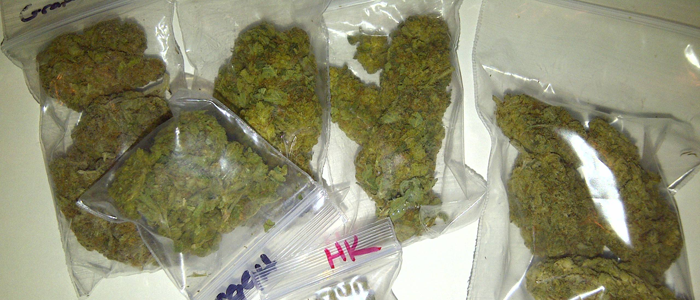Where is the evidence that marijuana is dangerous and addictive?
After the marijuana rescheduling ruling where the judges basically ignored all the evidence in support of empty words by the DEA, I got to thinking about it. What these paid off judges are claiming that because there are no studies that meet the DEA’s requirements of rescheduling marijuana, there’s no reason marijuana should be rescheduled. The problem here is that the DEA does not allow for these kinds of studies to take place when it comes to marijuana use.
However, the plaintiffs, ASA, provided a number of studies that meet the DEA’s high standards and requirement. Of course, these studies come from other nations who have been on the forefront of studying marijuana. This is why we know that the compounds in marijuana work for so many different ailments from nausea to cancer.
So, we’re caught in an “arbitrary and capricious” catch-22. The DEA needs these specific studies to reschedule marijuana. However, the DEA has to allow these studies to be conducted in the first place and they don’t accept competent studies from other nations. Since the DEA does not allow marijuana studies, how can they ever obtain the proof that marijuana is not the dangerous substance that it’s been proven to be…. wait..
…WAIT…
If the DEA doesn’t allow studies of marijuana, then what proof do they have that marijuana is a dangerous and addictive substance?
To this day, we don’t have proof that marijuana is dangerous and addictive. The only proof we have comes from xenophobic, racist congressional testimony from Harry Anslinger which isn’t proof at all. We have the Reefer Madness “documentary” which proved to be nothing more than a sad attempt at fear mongering. Where’s the proof? Where are the anecdotes that show marijuana to be this disturbing substance. It doesn’t exist.
Why is it that the DEA has ZERO burden of proof. They could essentially pick any substance to be placed in the schedules of the Controlled Substances Act. There is nothing in the way to stop them from doing this. There aren’t any brakes or checks and balances placed on these clearly “arbitrary and capricious” powers. The court system has proven to be useless in this matter, so far.
In 1969, parts of the Marijuana Tax Stamp Act was considered unconstitutional. It criminalized marijuana by requiring tax stamps to be purchased. You couldn’t buy the stamps without bringing the marijuana into the office. However, you needed the stamp to even have possession of it. The judge struck this down because it required people to break the law (carry unstamped marijuana into a government building) so that they could comply with the law. It was a catch-22 – need the marijuana to get the stamp but can’t have marijuana without the stamp. At least, this catch-22 wasn’t arbitrary and capricious; it wasn’t based on the whims of an agency with vested interest in keeping marijuana illegal. It was repealed with the passage of the Controlled Substances Act.
If these judges weren’t, in my opinion, paid for by those trying to keep marijuana criminalized, they could have admitted to the catch-22 and done something about the false lack of science that would back up rescheduling. Why didn’t they require the DEA to allow studies to their specifications to be conducted? The fact is, they’re not interested in doing the right thing. There are a number of researchers and scientists who’ve been waiting for years to study marijuana and its effects. But, these judges didn’t make this an issue. They chose to ignore the evidence that’s already available and drop the ball completely. There could have been a compromise to this mess. Instead, here we are with an arbitrary and capricious justice system where right and wrong is based on the whims of judges who really don’t give a damn.
The reality of our situation is that we continue to have laws like this on the books because the interest is not in the safety of American citizens but in the ability to oppress those with whom marijuana is supposedly popular – Blacks and Hispanics. It was true in 1936 and it’s true in 2013. African Americans and Hispanics continue to be the target of anti-marijuana enforcement, targeted more by law enforcement against statistics and research which shows of the marijuana using populations, Blacks and Hispanics make up only 30% of users but easily account for 70% of arrests and incarceration rates.









